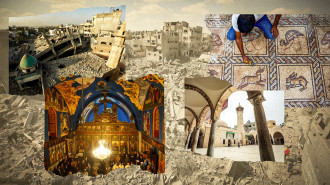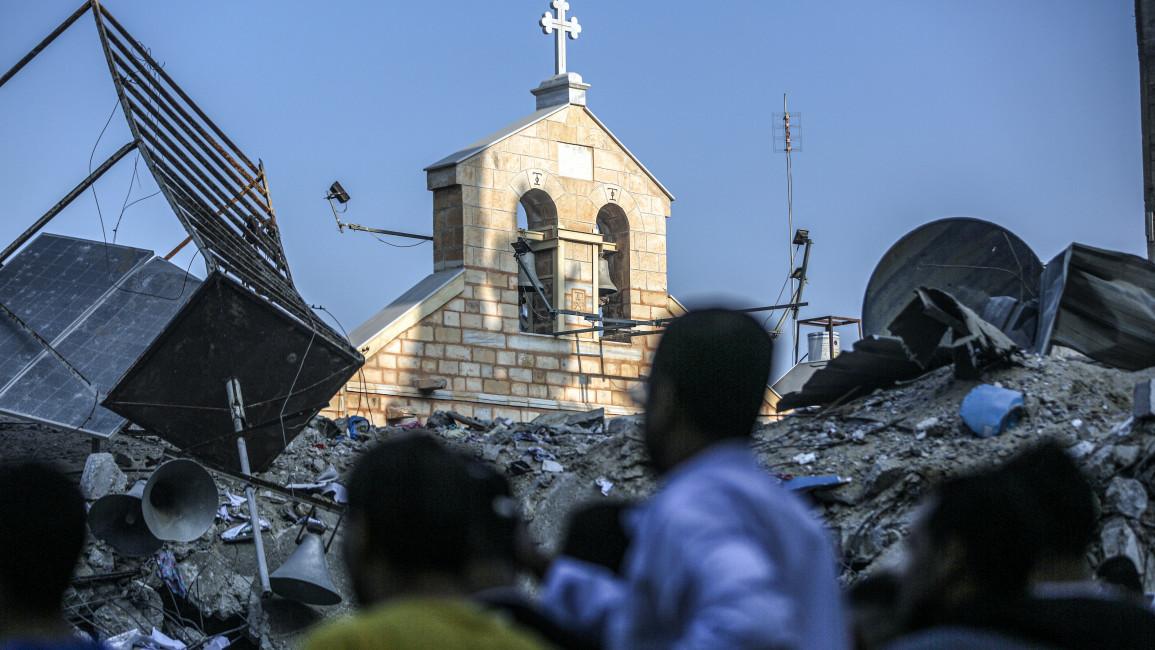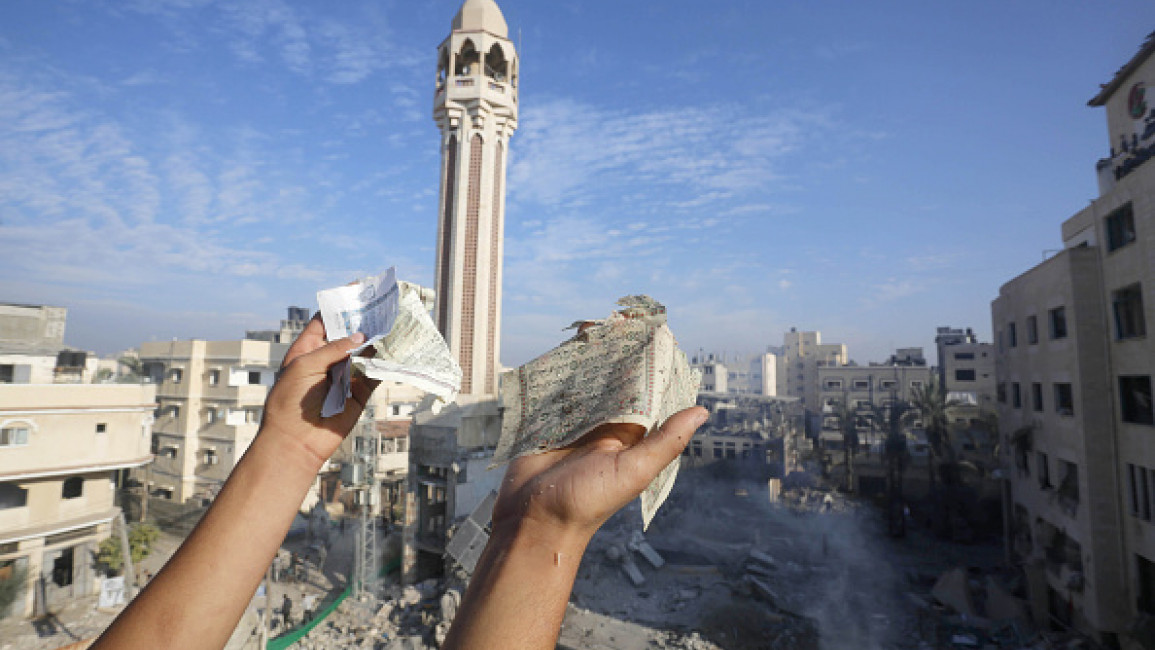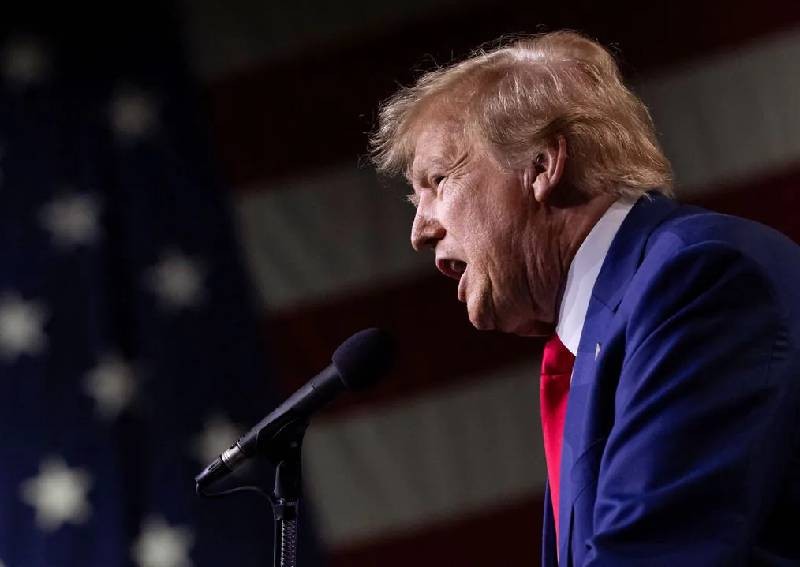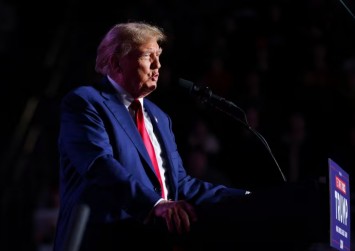The behaviour of post-Soviet Russian statecraft is poorly understood in the Western world. Long gone is the age of clever Kremlinologists.
BYJOSÉ MIGUEL ALONSO-TRABANCO
DECEMBER 19, 2023
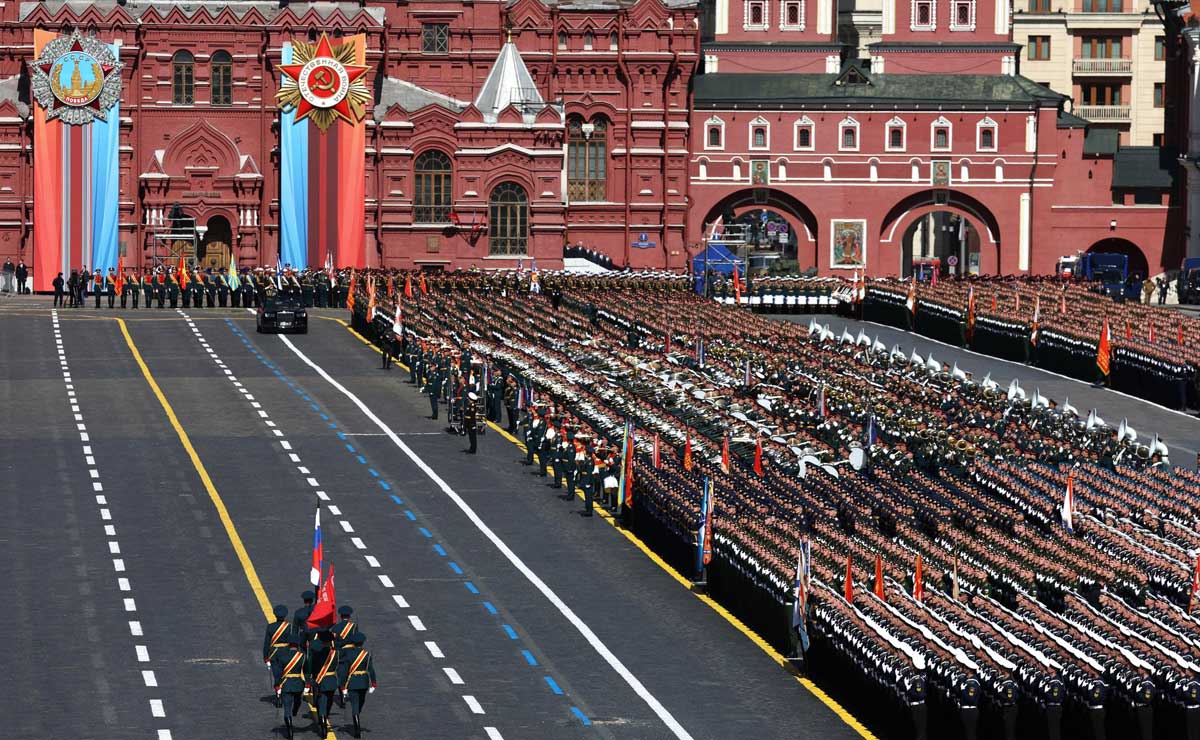
The behaviour of post-Soviet Russian statecraft is poorly understood in the Western world. Long gone is the age of clever Kremlinologists —men like George Kennan— whose sober insights shaped Western strategies and policies in the second half of the twentieth century. In the post-Cold War era, it was expected that Russia would follow the path of Westernisation by embracing liberal democracy, free markets, human rights, the so-called “rules-based order” and even the most emblematic flagships of postmodernism. However, Russia has not become a post-historical state like much of North America and Western Europe. Instead, in the last couple of decades, it has acted as an increasingly assertive, revisionist and self-confident great power that does not seek to emulate Washington or Brussels or join the collective West as a junior partner. Since this course of action does not respond to the overzealous gospel of Western liberalism, Russia is often portrayed as a “rogue”, “backward”, “outdated”, “evil”, “un-European” or even “irrational” state. For those unable to transcend such narrow horizons, Russia will always remain a riddle wrapped in a mystery inside an enigma.
The prevalence of such oversimplistic and Manichean views reveals an overall lack of a genuine intellectual effort. Without this element, uncovering the reasons and perceptions which have influenced Moscow’s political trajectories in the last couple of decades is an exceedingly arduous undertaking. Far from being only a cognitive shortcoming, these limited opinions have been directing policymaking in much of the collective West. The results —including the eastward expansion of NATO, the invasion of Ukraine, the unprecedented level of intense antagonism between Russia and the West and the strategic reproachment between Russia and China— speak for themselves. Needless to say, Russia can hardly be described as a charitable or altruistic state. In fact, Moscow does not even bother hiding its predatory ruthlessness in contested theatres of engagement. Yet, as an imperial great power that has played a key role in the Eurasian geopolitical Grossraum for centuries, the sources of its conduct deserve to be examined from a more accurate perspective.
Few Western intellectuals have tried to explain contemporary Russia in accordance with a more nuanced and unjudgmental viewpoint. American representatives of political realism —such as Professor John Mearsheimer, Kenneth Waltz and Henry Kissinger— have offered analytical assessments based on the logic of Realpolitik in order to understand Russian statecraft through the lens of national security, high politics and grand strategy. In turn, Canadian scholar Michael Millerman has highlighted the connection between Russian foreign policy and Russian philosophical thinking. Specifically, Millerman’s work has scrutinised the theories of Aleksander Dugin, the leading ideologue of Eurasianism as an alternative geopolitical project which intends to position Russia as civilisational and strategic counterweight to Atlanticism. These contributions represent valuable stepping-stones towards a better and deeper understanding. However, the development of a more in-depth scrutiny requires the integration of complementary perspectives. The purpose of this analysis is not to contradict the ideas of the aforementioned thinkers, but to offer additional elements than can sharpen, strengthen and calibrate the existing explanatory arsenal that is used to study the evolution of post-Soviet Russia. A more holistic guide for the perplexed is needed.
In this regard, this assessment holds that the teachings of German-American philosopher Leo Strausss provide an analytical framework that is helpful to interpret Russian statecraft. At first glance, Professor Strauss is an unlikely and maybe even counterintuitive candidate as a prophet of Kremlinology. First and foremost, Strauss was as a scholar of classical political philosophy. As such, his work seldom addressed the leading issues of the twentieth century. He had more to say about the lessons found in the writings of Plato, Aristotle, Thucydides, Xenophon, Maimonides, Al-Farabi and Machiavelli than about the Cold War’s geopolitical, strategic or ideological realities. Furthermore, his ideas are often maligned because of their supposed association with the militant neoconservative movement and its responsibility for disastrous endeavours like the Anglo-American of Iraq. However, said connection is inaccurate and, if anything, based on a distorted vision of his thought. Strauss believed in wisdom and moderation as cardinal virtues in statesmanship, not in a neo-Trotskyist permanent revolution inspired by a megalomaniac messianic fervour. In fact, his ideas were more influenced by the wisdom of the ancients and key authors who developed —directly or indirectly— the so-called ‘conservative revolution’ in Weimar Germany (Nietzsche, Hegel, Heidegger, Spengler and Schmitt) than by the Kantian acolytes of Wilsonian idealism. Leo Strauss was hardly the herald of people like Annalena Baerbock, Anne Applebaum or Victoria Nuland. Furthermore, he never endorsed a worldwide crusade to remake the world’s political systems. In fact, he supported a plurality of political models rather than uniformity. For Strauss, the prospect of global homogeneity literally represented the end of man and the ultimate death of philosophy, understood as intellectual contemplation.
This analysis constitutes an attempt to understand Russia through a perspective that does not respond to the commonplace views of conventional Westernist ‘democratism’. This pursuit is pertinent, not just as an intellectual quest, but as necessity of pragmatic expediency. Relations between Russia and the collective West are likely to remain adversarial for the foreseeable future because their geopolitical imperatives are incompatible under the current status quo. Even the end of the Ukraine War will not diminish strategic competition in Eastern Europe and several corners of the post-Soviet space. However, perhaps this rivalry can be managed so that strategic stability within the international system can be preserved. Hence, Straussian thinking can be instrumental for the rise of a new school of Kremlinology that brings more clarity for policymaking. Specifically, there are four theoretical principles found in Straussian teachings that can enlighten emerging generations of Western Kremlinologists: 1) the reassertion of traditionalism; 2) elite rule; 3) the rejection of unipolar cosmopolitanism and 4) the dangerous nature of the human condition. The ensuing contents discuss why and how each of them is relevant for a serious reading of post-Soviet Russian statecraft. In each case, a summary of key Straussian philosophical teachings is followed by observations that explain their empirical reflection in today’s Russia.
The Reassertion of Traditionalism
Leo Strauss was an outspoken opponent of liberal modernity and everything it stands for. According to Straussian thinking, modernity is the vulgar age in which frivolity, entertainment, degradation, comfort, triviality, emptiness, permissiveness, leisure, commercialism, pacifism and complacency have triumphed. Therefore, the Nietzschean ‘last man’ —the quintessential avatar of modernity— is a contemptible creature in whose nihilistic existence there is nothing worth fighting for. Rather than the fulfilment of a grandiose promise of ‘progress’, modernity represents a major crisis that has brought the fall of man and eclipsed the wisdom of the ancients. Therefore, abandoning the metaphorical caves of liberalism requires the rediscovery of pre-modern wisdom. Specifically, Straussian teachings emphasise that relearning the philosophical lessons from classical antiquity is the key source of inspiration for the restoration of vitality, resolve, morale and purposefulness. Yet, this is not only an intellectual journey. The chains of modernity must be broken so that the Promethean pursuit of human excellence can flourish. Moreover, Straussian teachings underscore that the weight of history —and the scrutiny of its instructive lessons— matters as a navigational compass for statesmanship.
Likewise, Strauss is an opponent of the so-called ‘open society’, one of modernity’s most worshipped totems. The values of an open society impoverish the seriousness of political life and embracing them can only lead to terminal decline. In contrast, Strauss holds that a closed society encourages exceptional qualities that raise the strength of the human spirit, including loyalty, virtue, wisdom, discipline, patriotism, the nobility of effort and honour. Rather than seeking wealth or prosperity, a closed society is focused on the collective pursuit of political outcomes, even if that quest leads to sacrifices for the sake of the greater good. As the concept suggests, the existential horizon of a closed society is confined to the substance of a particular national state whose cultural heritage, unique identity, traditional values and historical sources of inspiration are to be cherished. A polity whose closedness is extinguished is headed in the corrosive direction of decay, weakness, dissolution or even external predation. Only the martial virtues of a closed society can nurture the Spartan-like warrior ethos that a polity needs to ensure its greatness.
If is debatable if Russia is a modern national state. A long-range appraisal reveals ambivalent answers. Russia has experimented with recipes derived from two ideologies born in the cradle of modernity: socialism during the decades of the Soviet era and liberalism in the late 20th century. However, the results of experiments based on both models turned out to be counterproductive. First, the implosion of the Soviet Union was not just a tectonic “geopolitical catastrophe” for Russian national interests. It also represented the death knell of a declining and decrepit system —anchored to the ideological prism of Marxist-Leninist socialism— whose contradictions, failures and bankruptcies had become impossible to overcome. Second, the ensuing liberal era of ‘Weimar Russia’ exacerbated existing problems like political turmoil, economic stagnancy, corruption, interethnic tensions, falling birth rates, substance abuse, disarray, organised crime and prostitution. In contrast, post-Cold War Russian statecraft has had favourable experiences with non-liberal aspects of modernity. In fact, the complex nature of the Kremlin’s geopolitical strategies in this period can be described as exceedingly modern. In the increasingly confrontational chessboard of strategic competition, Moscow relies on sophisticated policies which embrace technological change, adaptation to the changing Zeitgeist of international politics, and the weaponisation of various vectors of complex interdependence (such as energy, social media platforms, migratory flows, finance and money).
On the other hand, Russian policy no longer intends to remake the national character in accordance with the liberal ideological tenets preached by the high priests of modernity in Washington, Davos and Brussels. In fact, the Russian state is rejecting Western trends like secularism, technocratic policymaking, open borders, feminism, the LGBT movement and militant “wokeness”. Some of these are even regarded as instruments of political, propagandistic and ideological subversion ran by Western powers. From the Russian perspective, the Western world is akin to a fallen angel that —driven by intellectual pride— has forsaken its heritage, identity, traditions and religion, all of which have been sacrificed at the altar of ‘progress’. Russia is not interested in sharing the post-historical fate of Western ‘open societies’. In opposition to such creed, Russia has embraced a return to older traditions as sources of guidance, authority, inspiration, symbols and referential frameworks that can fuel the revitalisation of the Russian national state.
This emerging neo-traditionalist Weltanschauung —which seeks to emphasise the uniqueness of the country— encompasses a series of overlapping identitarian underpinnings. Russia is evoking its legacy as the heir to the Byzantine Empire, which outlived the Western Roman Empire for a millennium. With Moscow as the ‘third Rome’, the Russian Federation intends to position itself as an Eastern great power, bulwark of Orthodox Christianity and multi-ethnic empire. In addition, the doctrine of Eurasianism states that Russia is more than a national state. According to this vision, Russia is a natural conservative tellurocracy which operates as an organic civilisational pole whose historical development has blended European and Asian components. Likewise, Russia is also harnessing the strength of nationalism to encourage pride and morale. Such course of action includes the heroic portrayal of Russian historic achievements —such as military victories and acts of conquest— and the celebration of figures like Peter the Great.
Needless to say, these views are not merely ideological. They are consistent with the Kremlin’s foreign policy in the ‘near abroad’, the projection of Russian ‘soft power’ and its strategic opposition to the league of liberal Atlanticist thalassocracies. Ultimately, Russia aspires to emulate the triumph of Sparta —a militaristic and aristocratic monarchy— against Athenian cosmopolitan democracy in the Peloponnesian War. Therefore, a neo-traditionalist revival must be pragmatically read as an attempt to restore the status of Russia as a key player in international politics and to revert the strategic setbacks provoked by the dissolution of the USSR, but also to counter pressing societal problems such as an impeding demographic contraction. Furthermore, the worldview of Russian neo-traditionalism is also reflected in the implementation of domestic policies. In fact, the Russian state officially supports religiosity, family values and traditional gender roles.
Elite Rule
For Professor Leo Strauss, the distinction between democratic and authoritarian political mores is often a cartoonish oversimplification. According to Straussian thinking, everything that overzealous liberal democrats disapprove of is portrayed as ‘authoritarian’. Much like Plato, Leo Strauss revers the figure of philosopher kings as ruling elites. Their position is determined not by their privileged upbringing, heritage or wealth. Instead, philosopher kings are exceptional men who embody the traditional archetypes of both the warrior (action) and the ascetic (intellectual contemplation). As such, they are enlightened by their superior knowledge of greater truths that the vulgar are unable to grasp. Their profound understanding of complex matters, hidden realities, dangerous affairs, and harsh revelations that the uninitiated are not aware of gives them a worldly wisdom for the masterful practice of statesmanship. These rulers are able to gaze into the depth of abyss without losing their unperturbed stoic temper and to still perform diligently. Their rule does not seek to please the fluctuating whims of public opinion, but to do what is needed to satisfy the national interest of the state.
During the 90s, Russia tried to reform its system of political governance and the structure of its economy in accordance with Western standards. However, said experiment failed to deliver essential public goods like order and prosperity. Judging by their disappointing outcomes, such efforts were largely discredited. For all intents and purposes, Russia rejected liberal democracy as a model worth replicating because it was utterly dysfunctional for its geopolitical, historical, societal, idiosyncratic and strategic conditions. Russian scepticism about the universalisation of Western liberal political dogmas is unapologetic. Actually, it seems that, from the Kremlin’s perspective, the march towards ‘the end of history’ —championed by the so-called ‘Davos men’— is a sanctimonious “cocktail of ignorance, arrogance, vanity and hypocrisy”.
In this regard, the regime built by President Vladimir Putin and the Siloviki clan can be described as a neo-Caesarist securocracy. This hermetic ruling elite is integrated by former KGB spooks involved in foreign intelligence activities during the Cold War. The rise of these cadres to power in a moment of deep crisis is not surprising if once considers that they represented —by far— the most competent and better trained personnel of the Soviet regime. Unlike Commissars and Party apparatchiks, KGB operatives were pragmatists whose fierce performance responded to the necessities of raison d’état rather than to ideological abstractions or preferences. Their word-class expertise was also forged by fire in some of the world’s most challenging flashpoints. Accordingly, the esoteric tradecraft of these people includes the arcane arts of espionage, covert action (‘active measures’), duplicity, conspiratorial intrigues, unconventional warfare and psychological operations. In fact, their fateful takeover of the Russian government at the dawn of the 21st century can likely be explained not just as the result of impersonal forces, but as a political masterstroke orchestrated thanks to the clandestine operational dexterity of these men.
Moreover, an exegesis of the policies implemented by this ruling elite indicates a worldview shaped by the principles of hardcore political realism. The members of the Russian ‘deep state’ live in a Machiavellian intellectual universe in which malice, secrecy, ruthlessness, threats, Faustian pacts, amoral calculations, deception, skullduggery and all sorts of ‘dark arts’ are necessary ingredients of politics and statecraft. In contrast, self-righteousness is a recipe for disaster in such cloak-and-dagger world. Hence, the authority of this elite has not been justified through democratic processes or by political popularity. In fact, the willingness and ability of doing what it takes to secure order, retain control, pursue the national interest and confront enemies is perhaps the strongest source of legitimacy for the Siloviki cabal. As the spectre of Leo Strauss is haunting Moscow, the rule of the Russian spy kings is seemingly here to stay.
Rejection of Unipolar Cosmopolitanism
Contrary to what is commonly believed, Leo Strauss was not a supporter of Quixotic quests for global imperial domination by any regime. He never endorsed any crusade to remake all political systems in accordance with a homogeneous blueprint. In fact, he was fiercely opposed to the prospect of a supranational state populated by ‘citizens of the world’ that have been detached from any connections to particular polities. For Strauss, the hypothetical fulfilment of liberal or socialist cosmopolitanism as a model of world order would represent a dystopian tyrannical threat that could only exist under the ironclad control of a Soviet-like bureaucratic dictatorship. Even worse, according to Straussian thinking, such nightmare —seen as unnatural because it neglects key traits which define the human condition— would lead to the ultimate death of philosophy. Under such conditions, the pursuit of intellectual contemplation, the proliferation of inquiry and the discovery of greater truths would never be possible. In short, Straussian teachings are antithetical to the ideas pushed by the likes of Immanuel Kant, Karl Popper, George Soros, Klaus Shwab or Yuval Noah Harari.
Far from preserving diversity, the globalisation of the ‘open society’ would bring an enforced uniformity that abolishes distinctions, plurality, contrasts, the need for noble deeds and identities, as well as both history and politics. Once history has been buried by the tempting promise of everlasting universal happiness, there would be no need for political struggles under the grey rule of a global tyranny presenting itself as ‘benevolent’. However, Leo Strauss prophesises that plans fuelled by globalist aspirations will invariably elicit the backlash of those that refuse to submit. In fact, he anticipates the prospect that growing opposition to universalist schemes and their sophistry will eventually ensure their demise. Even if this project were to be launched by a democracy, that would not make it any better or sugarcoat its undesirability. Strauss himself acknowledged that even democracies can give birth to imperialistic projects. Together, these arguments convincingly show that Straussian teachings reject the convenience and feasibility of a unipolar hegemonic configuration.
In this regard, the Soviet Union was a superpower interested in the pursuit of global hegemony. In contrast, the Russian Federation does not intend to achieve world domination or even to recreate the USSR. However, Russia is trying to reassert itself as the leading power of the post-Soviet space, especially throughout the so-called “Russian world”. Although it is nowhere near the US and China in many fields of national power, Moscow has the strength, assets and influence to operate as a major player in the global geopolitical chessboard. As such, Russian statecraft has been incrementally challenging Washington’s attempts to establish a hegemonic unipolar order and to remake the world in its image and likeness. Russia does not seek to overtake the US, only to advance a multipolar correlation of forces under which it can act as one of the key epicentres. Interestingly, the Kremlin is willing to partner with anybody —including state and nonstate actors— interested in undercutting US power, regardless of their civilisational, ideological or religious affiliations. In this Schmittian rejection of Western Atlanticism and everything it stands for, the beliefs held by the regimes of states like Brazil, China, Cuba, India, Iran, North Korea, Serbia, South Africa, Syria, Turkey or Venezuela are inconsequential as long as they oppose unipolarity and its pretensions to freeze history. This course of action reveals not just the pragmatic calculations of traditional Realpolitik, but also a resolved struggle to rollback the influence of a project focused on the universal expansion of the ‘open society’.
Considering the bilateral balance of power, Moscow’s response to American hegemonic pretensions is asymmetric, but its intensity has grown. This is reflected in the reliance of the Kremlin’s revisionist schemes on an arsenal which includes covert means, a myriad of unconventional power projection vectors, military force and even nuclear sabre-rattling. In short, Russia is aggressively contesting the vision of a unipolar world order undergirded by cosmopolitan liberalism as its official missionary ideology. Accordingly, rather than adopting post-historical Western models as a follower, Russia’s ‘heretical’ attitude seems determined to overturn them. Yet, there is an important nuance that deserves to be highlighted. For Russia, this rivalry is no Apocalyptic crusade or kamikaze mission. Actually, Moscow has hinted that perhaps a deal for the redistribution of spheres of influence can be negotiated in order to achieve a reasonable accommodation with the West. Thus, from the Kremlin’s perspective, it would be preferable to deal with pragmatic Western nationalist forces rather than with the uncompromising apostles and inquisitors trying to convert barbarians to the “one true faith” of universalist liberalism.
The Dangerous Nature of the Human Condition
Leo Strauss was no scholar of contemporary international relations or geopolitics, let alone Kremlinology. Nevertheless, as a student of political philosophy, the exegesis of his teachings reveals a mindset that is close to what the so-called realist school has to say. Not unlike hardcore classical realists, Strauss acknowledges the existence of hierarchies, the subordination of the weak by the strong, the amoral character of statecraft, human baseness and the propensity for conflict as permanent features of politics. As a crypto-realist with a Nietzschean twist, Strauss supported the views of Thrasymachus, Thucydides and Machiavelli about the rule of the powerful as the natural order of things in the political sphere. In accordance with this logic, justice is little more than the advantage of the mighty. Under such conditions, political lifeforms have no choice but to fight in order to pursue their interests, enhance their preparedness, preserve their vitality and uphold what they believe is right. In other words, polities can either embrace danger or perish as a consequence of their folly and/or cowardice. As a result, the practice of statesmanship responds to the particular priorities and preferences of a polity, but not to universalistic expectations. Nevertheless, Strauss never glorified warmongering. He simply recognised politics as an intrinsically confrontational realm whose circumstances often require the decisive ability to overcome risk-aversion in matters of life and death. These perspectives are fully compatible with the philosophical underpinnings of what classical realist thinking is all about. Yet, unlike most realists, Strauss emphasised the importance of ideological motivation to strengthen national morale in engagements which demand a substantial mobilisation of effort.
Interestingly, there are other revealing connections between Straussian teachings and realism as a school of thought. Leo Strauss was an avid student of Thucydides’ writings about the Peloponnesian War. For the German-American philosopher, the work of Thucydides was more than a foundational treatise of realist theory. In his view, such source of ancient wisdom imparted timeless lessons about statecraft, history, human nature and the virtues of the warrior spirit, as well as the importance of attributes like prowess, resolve, and courage in the quest for greatness. In addition, Hans Morgenthau thanked Leo Strauss for his contribution to the introduction of Politics Among Nations, a seminal text which presents the theoretical principles of classical realism. The intellectual cornerstone which underwrites this specific branch of realism is an anthropologically pessimistic conception of human nature due the sinfulness of man and his quintessential condition as a political creature. As Carl Schmitt observed, “all serious political theories presuppose man to be evil”. Moreover, the quasi-Nietzschean concept of the ‘Animus Dominandi’ —put forward by Morgenthau and understood as the natural inclination of humans to subordinate their peers— is fully aligned with the spirit of Straussian teachings.
Post-Cold War Russian statecraft is a textbook example of Darwinian Realpolitik. This inclination is the natural consequence of Russian history, shaped by imperial traditions, intense geopolitical rivalries and the constant threat of invasions. Moscow’s foreign policy, national security and grand strategy are driven by the need to prepare for confrontation against hostile forces and to prevent an eventual encirclement of the motherland. As an assertive and self-confident player in the arena of high politics, the Kremlin believes that being feared is a wise course of action that will deter potential enemies. In turn, Russia intends to subordinate neighbouring weaker states by integrating them into its orbit in one way or another and, at the same time, it refuses to capitulate before stronger counterparts like the US. When Moscow’s arm-twisting tactics do not produce the expected outcomes, the Russians are willing to flirt with danger by embracing war as an instrument of statecraft. From Moscow’s perspective, it is preferable to fight in a vicious jungle as a predator than to assume a subservient role in a neo-Edenic garden in which rules made by others are selectively implemented. Better to reign in its own hell than to serve in the Westernist heaven. Unsurprisingly, the proportion of Russian citizens willing to fight for the country is way higher than in many Western European states. Rather than following the path of the ‘last man’, Russian wants to be amongst the last men standing.
In some cases —including Chechnya, Georgia, Kazakhstan and Syria— Russian military interventions have been successful. Concerning the invasion of Ukraine and its fallout, President Putin and his ruling elite made a risky gamble, but they are convinced that the conflict is worth fighting. The war offers a window of opportunity to remake the global balance of power and to achieve beneficial facts on the ground even if that comes with the risks and costs of challenging NATO. However, the Russians are not suicidal or megalomaniac. Moscow’s pragmatic aims are rather limited. The idea of Russian tanks overrunning Warsaw or even Lviv is out of touch with reality. Russians lack the appetite for an ominous conflict which might directly spark a nuclear Armageddon. Nonetheless, if necessary, they are prepared to fight to make sure their national interests prevail, especially in the so-called ‘near abroad’. As a neo-Spartan polity, Russia expects to prevail against Athen’s spiritual heirs in the West because the balance of resolve and its pool of resources favour the commitment of its war effort. Still, as is often the case in the art of war, only time will tell if this aggressive bid leads to glory or to ruin. If the war effort backfires or in the case of a pyrrhic victory, Vladimir Putin will have a lot to answer for, both politically and historically. But if Russia eventually manages to prevail in any meaningful way, he will be seen by posterity as a successful —and implacable— statesman that performed proficiently.
Conclusions
Understanding post-Cold War Russian statecraft under the Vladimir Putin is a challenging intellectual task whose complexity requires transgressing the myopic and self-righteous horizon of liberalism. In fact, an in-depth examination reveals that contemporary Russia has followed an increasingly Straussian trajectory in more than one respect. Certainly, that does not mean that Leo Strauss is somehow the posthumous sinister mastermind of Moscow’s behaviour. Strauss passed away nearly three decades before the collapse of the Soviet Union. Likewise, President Putin and his court of spy kings may not even be remotely familiar with Strauss’ obscure writings, especially considering his undeserved reputation as the patriarch of neoconservatism. Yet, there is a substantial degree of uncanny resemblance between key Straussian principles and the behaviour of the Russian state. Accordingly, the instructive insights found in the philosophical teachings of the German-American Professor offer a sharp referential framework whose interpretative merits can help decipher the underlying logic and qualities of the Kremlin’s strategic playbook. The Straussian philosophical worldview has turned out to be a powerful key which can unlock some of the cryptic matters of contemporary Kremlinology and perhaps also to recalibrate the examination of other illiberal states, including China and Iran. This usefulness highlights the relevance of the far-sighted lessons of Straussian thinking not just for scholars, but also for practitioners involved in foreign policy, intelligence analysis and national security. An increasingly illiberal world in which illiberal states are acting in accordance with illiberal rationales requires a profound knowledge of illiberal political science for analytical, predictive and prescriptive purposes.
